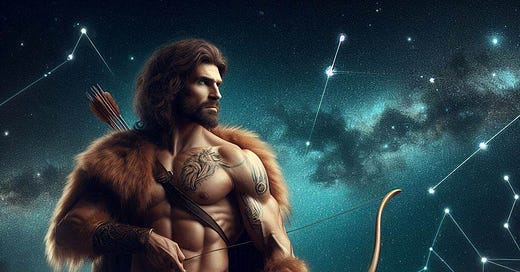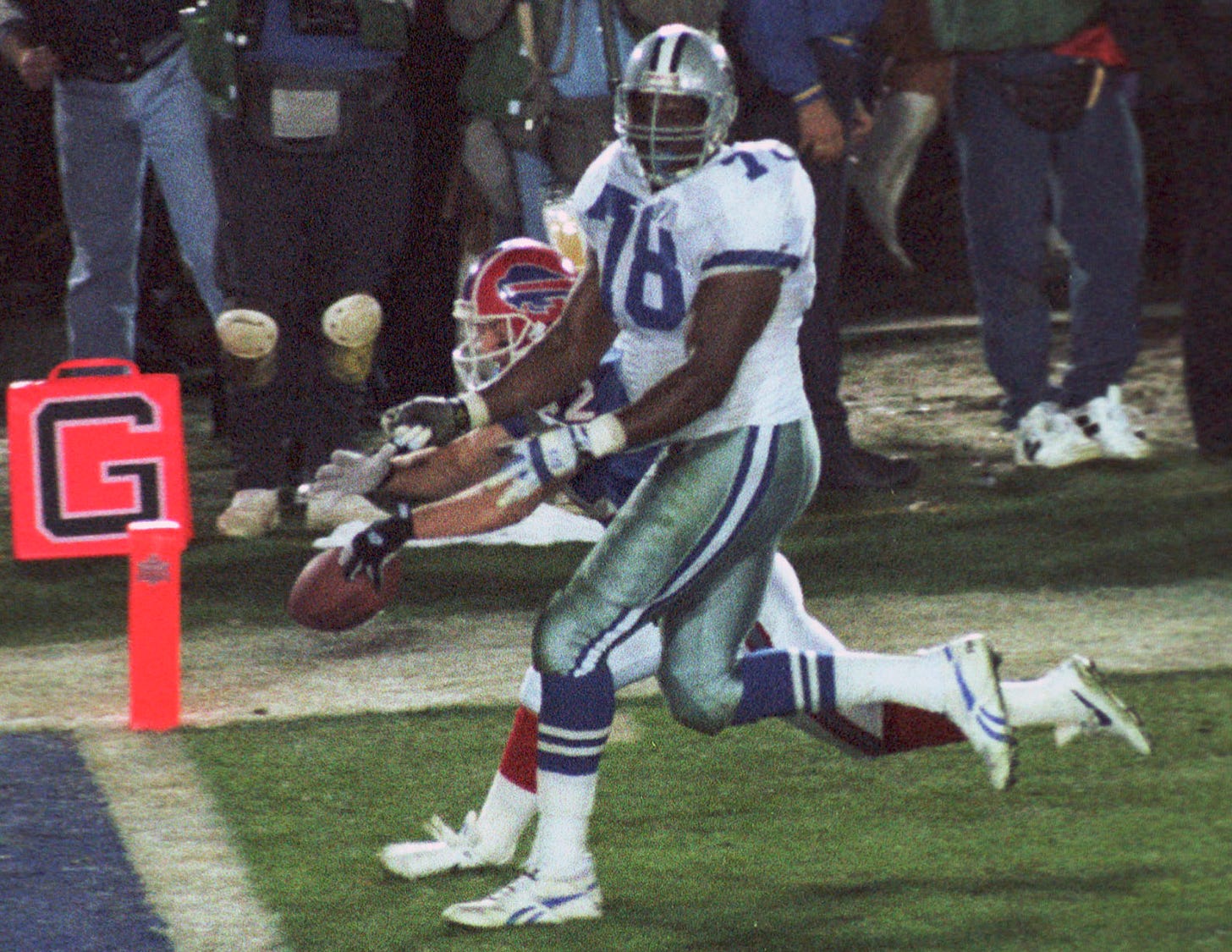Numbers, 10-Qs, and financial reports drive a lot of my day to day. At times I wonder how did I get here? How is it that I came to consume numbers & make judgement calls on whether to invest in a Company A or Company B. Or advise people on business strategy given changing circumstances. And number matter, but the truth is a lot of my personal success has come from my mindset. And some of my biggest failures can be sourced back to a poor mindset as well.
So today I wanted to share a bit about a deadly trait for all investors, business operators, and humans alike, hubris. Also known as: excessive self pride & confidence.
I wake up pretty early now. Usually a 5 handle. And in the early hours of the morning I like the stillness of the world. The darkness of the sky. The tranquility. It's a far cry from my former self, who would be sleeping until the morning was mostly gone. Of course, my work schedule then was inverted (night time was show time) and early mornings didn’t exist. Life, we all know, is constant evolution.
For me, there's a certain magic in these early AM hours. The silence is not empty, but full of possibility. It's as if the world holds its breath, waiting for the first moments of life to break. Like we’re sitting at the starting line waiting for the gun to go off, waiting for something great to happen. In this space between night and day, my thoughts flow free, no emails, no phone alerts, no “markets in turmoil” headlines flashing, and no bank balance sheets in my head (a happy place no doubt).
It's my time for reflection, for setting intentions, for connecting with the deeper currents of our lives that often get drowned out in the hustle and bustle of daily existence.
And almost every day (I’m human) I find myself outside staring into the darkness at the stars flickering millions of miles away. Talk about perspective inducing, here’s these giant balls of gas and stardust I’m looking at that will never be encountered and whose existence is so far away I’m looking at the past.
And there, in the blackness I see Orion, his belt laid out in the sky. Most people know Orion’s Belt, the three stars almost in a perfect line. These three stars have been a guide for sailors, a calendar for farmers, and a source of inspiration for poets and dreamers throughout human history. They connect us to our ancestors who gazed upon the same stars, asking the same eternal questions about our place in the universe and dealing with the same things we deal with today. How to succeed? How to grow? How to be a good human?
But do you know the tale behind those three aligned stars?
Orion was a giant of a man, a hunter without peer. His prowess was legendary, his strength unmatched. In some versions of the myth, he was so tall he could wade through the deepest oceans with his head above water. He strode across the earth like a colossus, boasting that no creature could best him. His skill with the bow was unparalleled, and he could track any beast across any terrain. But ah, here's the rub: his pride swelled beyond measure, and the gods took notice.
You see, in the Greek worldview, hubris – excessive pride or self-confidence – was considered the gravest of sins. It was a transgression against the natural order, an attempt to elevate oneself to the level of the gods. And the gods, being rather fond of their exalted status, tended to take a dim view of such presumption. I feel like the market gods take after the Greek Gods, don’t they?
So the Gods sent a tiny scorpion to humble the mighty hunter. Some versions of the myth say it was Gaia, the Earth goddess, who sent the scorpion, offended by Orion's boast that he could kill any animal. Others attribute it to Apollo, who was jealous of his sister Artemis's affection for Orion. Regardless of the source, the outcome was the same. The greatest hunter in the world, felled by a creature he would have once considered beneath his notice. A tiny little scorpion.
And now, for eternity, Orion sits in the sky chasing the Pleiades (in the Taurus constellation) across the night sky forever. It's a humbling image – the mighty hunter, immortalized yet forever denied his quarry. One can almost imagine him pausing in his endless pursuit, looking down at the Earth, and sighing at how hubris cursed him.
Hubris, that fatal flaw of the overconfident, is a treacherous beast. It blinds us to our limitations, deafens us to wise counsel, and leads us down paths strewn with despair. It turns triumphs to ashes in our mouths and makes enemies where we might have had friends. Most insidiously, it stunts our growth, for how can we improve if we believe we're already perfect?
Hubris causes you to make bad decisions. Just ask Leon Lett.
Psychologically, hubris is a complex phenomenon that affects both our cognitive processes and our physiology. Research has shown that excessive pride and overconfidence can lead to a surge in testosterone and dopamine levels. A 2017 study published in the journal "Cerebral Cortex" found that individuals exhibiting hubristic pride showed increased activity in the anterior cingulate cortex and medial prefrontal cortex, areas associated with self-referential thinking and reward processing. This neurochemical cocktail can create a sense of euphoria and invincibility, further reinforcing the hubristic mindset.
Everyone of us remembers that “one time” we got a little too geeked up on our own success to make the right decision, right?
Moreover, hubris has been linked to what psychologists call the "illusion of control" – an overestimation of one's ability to influence events. A classic study by Ellen Langer in 1975 demonstrated that people often believe they have control over purely chance events. This illusion can lead to risky behavior and poor decision-making, as individuals fail to accurately assess the role of luck or external factors in their successes.
I call this the “I did that” phenomenon. Which is very easy to point out in others but sometimes harder to notice in ourselves.
The effects of hubris ripple out far beyond the individual. In the corporate world, we've seen countless examples of companies brought low by the arrogance of their leadership. Think of Kodak, once a titan of industry, now a cautionary tale of what happens when you believe your dominance is unassailable. Or consider the 2008 financial crisis, fueled in large part by the hubris of bankers who thought they had outsmarted risk itself. And what about Blockbuster who had the chance to buy Netflix before they became the behemoth they are today?
Jim Collins was onto something when he noted hubris was the beginning of the end for companies.
And in bank land, pick your favorite CEO or management team that thought they were infallible and levered “just a little more” because their overconfidence blinded them to the risk they were taking?
On a personal level, hubris can poison relationships, stifle personal growth, and lead to poor decision-making. It can cause us to overestimate our abilities and underestimate challenges, setting us up for failure. Moreover, it can make us resistant to feedback and blind to our own mistakes, trapping us in cycles of repeated errors.
In the realm of investing, hubris can be particularly devastating. The financial markets have a way of humbling even the most seasoned professionals, yet hubris can lead investors to believe they've outsmarted the system. This overconfidence can manifest in several ways. Investors might overtrade, believing they can time the market perfectly. They might concentrate their portfolio in a single stock or sector, convinced they've identified the next big thing. Or they might ignore warning signs, dismissing negative information that doesn't align with their beliefs.
A study published in the Journal of Finance in 2018 found that overconfident CEOs tend to overestimate returns on their investments and overpay for acquisitions. And I am sure that exactly zero of you are surprised at this fact. Especially if you remember the AOL/Time Warner Deal.
Similarly, individual investors suffering from hubris may take on excessive risk, ignore diversification principles, and react emotionally to market movements. The result can be catastrophic losses that could have been avoided with a more humble, measured approach. As Warren Buffett wisely noted, "It's only when the tide goes out that you learn who's been swimming naked." Hubris can leave investors exposed when market conditions inevitably change.
But fear not, we don’t need to fall prey to Orion's fate. The human mind, that marvelous instrument, has the capacity for self-reflection and change. With conscious effort and the right strategies, we can keep hubris at bay and cultivate a healthier, more balanced sense of self.
Here are three psychological strategies, backed by scientific research, to help you on this journey to become a better human & investor.
Practice mindful self-reflection. Studies show that regular meditation increases self-awareness and reduces egocentric thinking. A 2017 study published in the journal "Frontiers in Psychology" found that mindfulness meditation can decrease activity in the default mode network, a brain region associated with self-referential thoughts. By creating space between ourselves and our thoughts, we can observe our ego more objectively and keep it in check. Full circle: this is why I like the quiet reflections of the early morning. You don’t need long, 5 minutes a day works wonders.
Seek diverse perspectives. Research indicates that exposure to differing viewpoints enhances cognitive flexibility and reduces overconfidence. A 2019 study in the "Proceedings of the National Academy of Sciences" found that exposure to diverse political views on social media can decrease polarization and increase understanding of different perspectives. By actively seeking out opinions that challenge our own, we can broaden our understanding and avoid the echo chambers that reinforce hubris. Same thing here, even one or two contrasting viewpoints does wonders. Seek out someone with the opposite take as yours. Have a discussion and try to learn something.
Embrace failure as a teacher. A study in the Journal of Experimental Social Psychology found that reflecting on past failures can increase humility and improve decision-making. The researchers found that participants who wrote about a time they failed subsequently made more accurate judgments about their abilities than those who wrote about a success. By reframing failure as a learning opportunity rather than a threat to our self-image, we can grow from our mistakes instead of being diminished by them. Kobe (I’m paraphrasing) thought about it the best. There is no such thing as failure, because the story goes on. You fail today. You wake up tomorrow and you try again. The only way something is a failure is if you stop trying. Embrace these failures, from them comes growth.
Implementing these strategies isn't always easy. It requires courage to face our own limitations, openness to challenge our deeply held beliefs, and resilience to bounce back from failures. But the rewards – greater self-awareness, improved relationships, and better decision-making – are well worth the effort.
Kill hubris and your performance will go up.
And to be clear, I don’t want people to lose their moxy or their confidence because positive mindsets drive outsized impacts. But the key is to know when your confidence bleeds into Orions category.
For this, the best way I know is to ask a close friend, “Hey am I being an arrogant prick on a this thing?” You may laugh, but your friends will know and if they’re a good friend they will love telling you yes if you are.
And before you go I want you to take one more thing away from Orion
Think about those three stars in Orion's belt. They appear to be close neighbors, don't they? Yet in reality, they're separated by unfathomable distances. Alnitak, Alnilam, and Mintaka - their very names are poetry - are hundreds of light-years apart. What seems proximate from our earthly vantage point is, in cosmic terms, vastly distant. This candidly makes my brain hurt.
To put this into perspective, consider this: light, the fastest thing in the universe, takes about 1,260 years to travel from Alnitak to Mintaka. If you were to embark on a journey from one star to another in Orion's belt, traveling at the speed of our fastest spacecraft, it would take you millions of years to complete the trip. And yet, from our vantage point on Earth, they’re right there next to each other
And therein lies another lesson, as valuable as the tale of Orion itself. Appearances can be deceiving. Our perspective, limited as it is, can lead us astray. What we perceive as truth may be merely a trick of the light, a quirk of our position in time and space.
This principle extends far beyond astronomy. In our daily lives, we're constantly making judgments based on limited information, seen from our particular vantage point. We see a colleague's success and assume their life must be perfect. We witness a stranger's moment of rudeness and conclude they must be a terrible person. We look at the complexity of the world and convince ourselves we understand it all.
But just as Orion's belt reminds us, things are rarely as simple as they appear. The colleague with the perfect career may be struggling with personal issues we know nothing about. The rude stranger might be having the worst day of their life. And the world? Well, the more we learn, the more we realize how much we don't know.
This realization, far from being discouraging, should fill us with wonder, humility, and gratitude. It invites us to approach life with curiosity, to seek understanding rather than rushing to judgment. Avoid judgement. It encourages us to be kinder, knowing that everyone we meet is fighting battles we cannot see. Be kind. Be grateful. Lift each other up.
So the next time you look up in the sky and see Orion, remember to avoid hubris at all costs.
May you all prosper. May you all stay grateful. And may we all avoid hubris at all costs.
The best is ahead.
Victaurs









